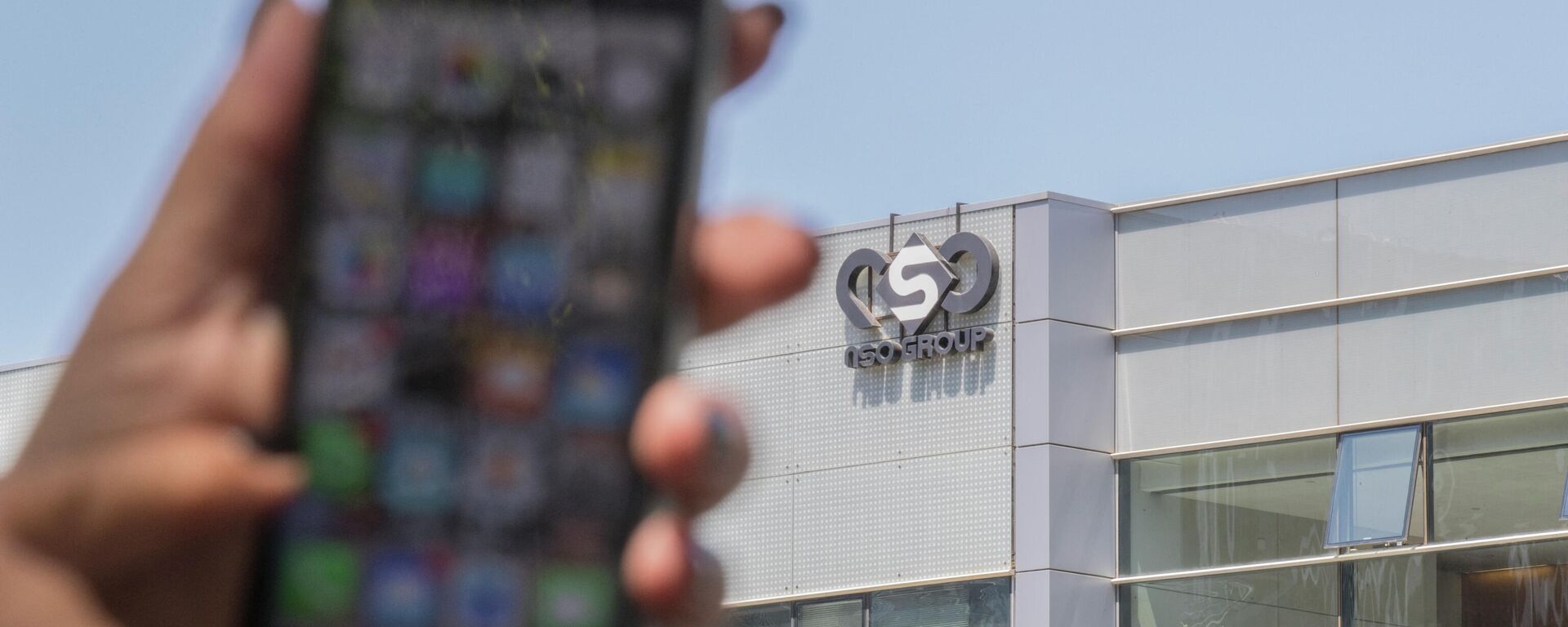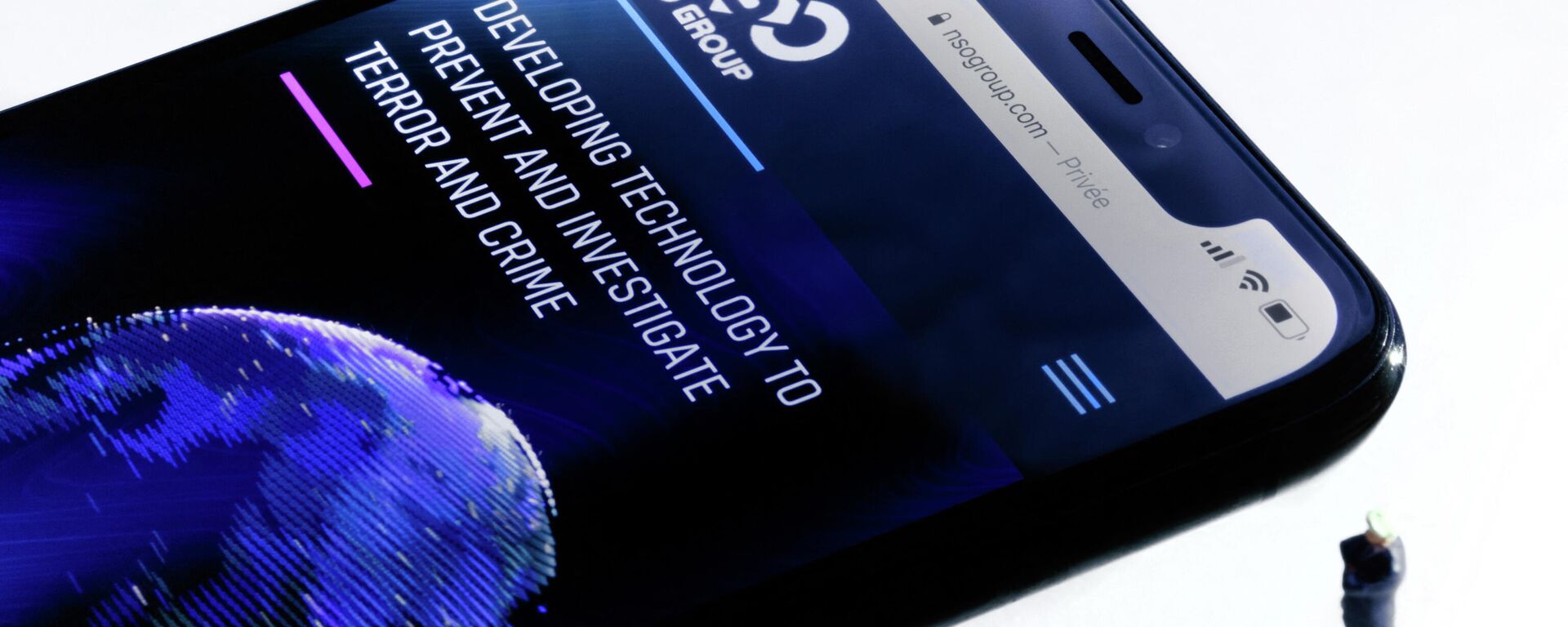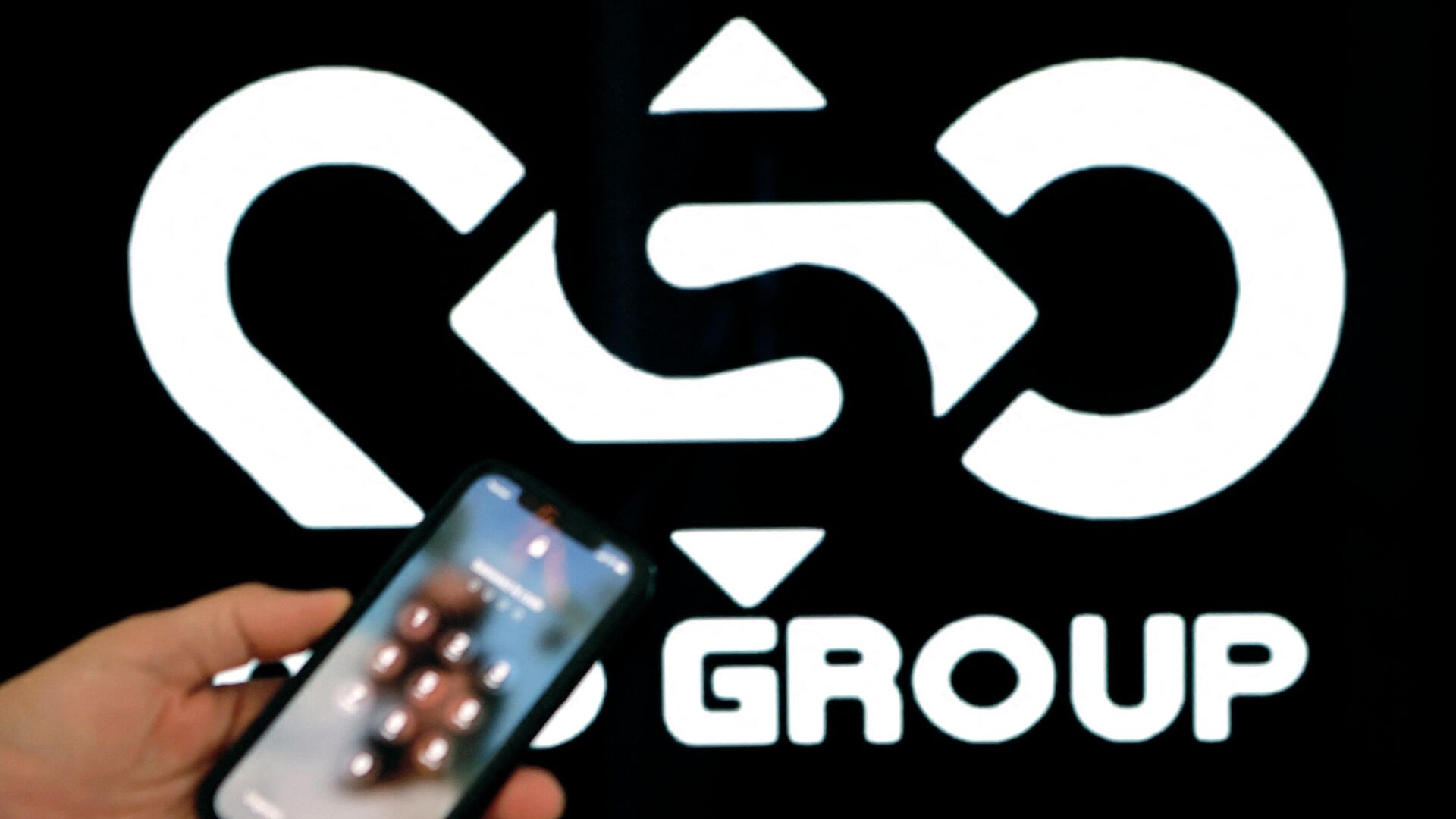https://sputnikglobe.com/20220711/report-us-intel-operatives-backed-plans-to-buy-infamous-nso-group-before-negotiations-were-axed-1097164780.html
Report: US Intel Operatives Backed Plans to Buy Infamous NSO Group Before Negotiations Were Axed
Report: US Intel Operatives Backed Plans to Buy Infamous NSO Group Before Negotiations Were Axed
Sputnik International
The firm in question is responsible for Pegasus, a "zero-click" hacking tool that can remotely extract everything from a target's mobile phone, including... 11.07.2022, Sputnik International
2022-07-11T01:26+0000
2022-07-11T01:26+0000
2022-07-11T01:23+0000
us
military & intelligence
nso group
pegasus
https://cdn1.img.sputnikglobe.com/img/07e6/07/0b/1097165615_0:182:3072:1910_1920x0_80_0_0_fe8695f1756df4c1ea651259197d9f87.jpg
In recent months, a team of executives from an American military contractor made several covert trips to Israel to try to carry out a bold plan of buying the NSO Group, the controversial Israeli cyber hacking company, the New York Times reported on Sunday.According to the report, in their endeavor, the team from L3Harris, an American business with experience in spyware technology, encountered significant obstacles. First, they began with the unsettling fact that NSO had been placed on a blacklist by the US government after foreign governments used the Israeli company's spyware to hack into the phones of journalists, human rights activists and political figures.The Biden administration declared NSO to be "contrary to the national security or foreign policy interests of the United States" and barred American corporations from doing business with the Israeli company as a result of the blacklisting in November. However, according to the Time's sources, the L3Harris team allegedly found a way to make a deal seem feasible. It was reportedly determined that American intelligence officials had been quietly supportive of the defense firm's effort to acquire NSO, a company whose technology has long been of great interest to numerous international intelligence and law enforcement organizations - including the FBI and the CIA.The negotiations went on in secrecy up until last month, when rumors of a potential sale of NSO surfaced and reportedly caused a panic among participants. The New York Times further added that White House officials were outraged at learning about the negotiations, and warned that any attempt by American defense firms to acquire a blacklisted company would face fierce opposition.According to other sources, L3Harris, which is heavily dependent on government contracts, informed the Biden administration that it had abandoned its plans to buy NSO a few days later, despite attempts to revive the negotiations. It is unknown, however, whether the US government, with or without the knowledge of the incumbent administration, caught the chance to attempt to bring NSO's spyware under American control despite the administration's very public stance against the Israeli company. After years of allegations about how countries had utilized Pegasus as a tool for domestic spying, the Biden administration decided to add NSO to a Commerce Department blacklist in late 2021. However, Pegasus has also been bought, tested, and used by the US itself. Under fear of fines, American businesses are prohibited from doing business with organizations on the Commercial Department's blacklist.As a result of sanctions against it, NSO has been unable to purchase any American equipment, including Dell servers and Amazon cloud storage, in order to maintain its operations. The Israeli company has reportedly been expecting that being sold to a US company would result in sanctions being lifted.Few Conditions Before Acquisition That Didn't HappenAs for the botched negotiations, L3 Harris representatives claimed they had been given permission by the US government to negotiate with NSO despite the company being on the American blacklist. These discussions supposedly included at least one meeting with Amir Eshel, the director general of the Israeli defense ministry, who would have to approve any deal. Additionally, L3 Harris' representatives allegedly informed the Israelis that the US intelligence community backed the acquisition if a few requirements were satisfied.One of the requirements, according to the report, was that US allies in the so-called Five Eyes intelligence-sharing partnership may purchase all of NSO's stockpile of "zero days," the computer source code flaws that enable Pegasus to hack into mobile phones. Aside from the US, the partnership is composed by the UK, Canada, Australia and New Zealand. Had the plan been implemented, it would have been exceedingly uncommon, according to the sources, because the Five Eyes nations typically only buy intelligence services developed and produced in those nations.Officials from the Israeli defense ministry were amenable to this plan, according to the report; however, the agreement eventually fell through after the Israeli government refused to grant NSO's request due to intense pressure from the Israeli intelligence community. Israeli officials also refused - the sources claimed - to allow L3's cyber specialists to visit Israel and collaborate with NSO's development teams at their headquarters. Defense ministry representatives insisted that Israel maintain its right to issue export licenses for NSO's goods, but they supposedly indicated they were open to negotiating which nations received the malware.Although L3Harris is not a major firm in the US defense sector like Lockheed Martin or Raytheon, it nonetheless receives billions in annual revenue from federal and state government contracts in the country. In fiscal year 2021, various US government contracts accounted for more than 70% of the company's revenue, according to the most recent annual report.
https://sputnikglobe.com/20211214/scandal-ridden-spyware-company-nso-mulls-closing-pegasus-unit-selling-company-to-americans-1091515161.html
https://sputnikglobe.com/20211203/israels-nso-reportedly-in-covert-deal-with-cyber-firm-trained-to-exploit-security-weak-spots-1091227368.html
Sputnik International
feedback@sputniknews.com
+74956456601
MIA „Rossiya Segodnya“
2022
News
en_EN
Sputnik International
feedback@sputniknews.com
+74956456601
MIA „Rossiya Segodnya“
Sputnik International
feedback@sputniknews.com
+74956456601
MIA „Rossiya Segodnya“
us, military & intelligence, nso group, pegasus
us, military & intelligence, nso group, pegasus
Report: US Intel Operatives Backed Plans to Buy Infamous NSO Group Before Negotiations Were Axed
Kirill Kurevlev
Managing Editor
The firm in question is responsible for Pegasus, a "zero-click" hacking tool that can remotely extract everything from a target's mobile phone, including messages, contacts, images and videos. Additionally, it can make the phone into a tracking and recording tool.
In recent months, a team of executives from an American military contractor made several covert trips to Israel to try to carry out a bold plan of buying the NSO Group, the controversial Israeli cyber hacking company, the New York Times
reported on Sunday.
According to the report, in their endeavor, the team from L3Harris, an American business with experience in spyware technology, encountered significant obstacles. First, they began with the unsettling fact that NSO had been placed on a blacklist by the US government after foreign governments used the Israeli company's spyware to hack into the phones of journalists, human rights activists and political figures.
The Biden administration declared NSO to be "contrary to the national security or foreign policy interests of the United States" and barred American corporations from doing business with the Israeli company as a result of the blacklisting in November.
However, according to the Time's sources, the L3Harris team allegedly found a way to make a deal seem feasible. It was reportedly determined that American intelligence officials had been quietly supportive of the defense firm's effort to acquire NSO, a company whose technology has long been of great interest to numerous international intelligence and law enforcement organizations - including the FBI and the CIA.

14 December 2021, 13:48 GMT
The negotiations went on in secrecy up until last month, when rumors of a potential sale of NSO surfaced and reportedly caused a panic among participants. The New York Times further added that White House officials were outraged at learning about the negotiations, and warned that any attempt by American defense firms to acquire a blacklisted company would face fierce opposition.
According to other sources, L3Harris, which is heavily dependent on government contracts, informed the Biden administration that it had abandoned its plans to buy NSO a few days later, despite attempts to revive the negotiations.
It is unknown, however, whether the US government, with or without the knowledge of the incumbent administration, caught the chance to attempt to bring NSO's spyware under American control despite the administration's very public stance against the Israeli company.
After years of allegations about how countries had utilized Pegasus as a tool for domestic spying, the Biden administration decided to add NSO to a Commerce Department blacklist in late 2021. However, Pegasus has also been bought, tested, and used by the US itself. Under fear of fines, American businesses are prohibited from doing business with organizations on the Commercial Department's blacklist.
As a result of sanctions against it, NSO has been unable to purchase any American equipment, including Dell servers and Amazon cloud storage, in order to maintain its operations. The Israeli company has reportedly been expecting that being sold to a US company would result in sanctions being lifted.
Few Conditions Before Acquisition That Didn't Happen
As for the botched negotiations, L3 Harris representatives claimed they had been given permission by the US government to negotiate with NSO despite the company being on the American blacklist. These discussions supposedly included at least one meeting with Amir Eshel, the director general of the Israeli defense ministry, who would have to approve any deal.

3 December 2021, 15:59 GMT
Additionally, L3 Harris' representatives allegedly informed the Israelis that the US intelligence community backed the acquisition if a few requirements were satisfied.
One of the requirements, according to the report, was that US allies in the so-called Five Eyes intelligence-sharing partnership may purchase all of NSO's stockpile of "zero days," the computer source code flaws that enable Pegasus to hack into mobile phones. Aside from the US, the partnership is composed by the UK, Canada, Australia and New Zealand.
Had the plan been implemented, it would have been exceedingly uncommon, according to the sources, because the Five Eyes nations typically only buy intelligence services developed and produced in those nations.
Officials from the Israeli defense ministry were amenable to this plan, according to the report; however, the agreement eventually fell through after the Israeli government refused to grant NSO's request due to intense pressure from the Israeli intelligence community.
Israeli officials also refused - the sources claimed - to allow L3's cyber specialists to visit Israel and collaborate with NSO's development teams at their headquarters. Defense ministry representatives insisted that Israel maintain its right to issue export licenses for NSO's goods, but they supposedly indicated they were open to negotiating which nations received the malware.
Although L3Harris is not a major firm in the US defense sector like Lockheed Martin or Raytheon, it nonetheless
receives billions in annual revenue from federal and state government contracts in the country. In fiscal year 2021, various US government contracts accounted for more than 70% of the company's revenue, according to the most recent
annual report.


